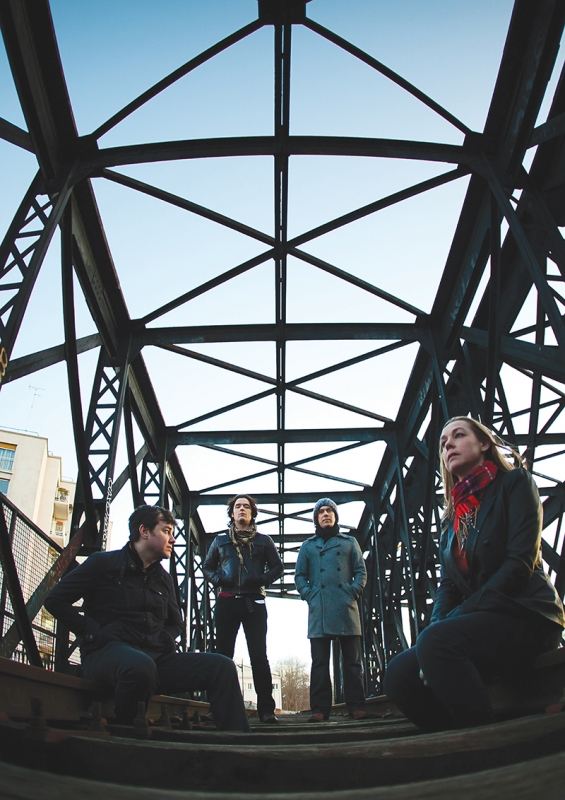A Universal Journey: An Interview with Anathema’s Vincent Cavanagh
Music Interviews

It’s a cliché, but when you hear folks say life is about the journey rather than the destination, it’s the absolute truth. Liverpool’s Anathema embark on their first North American tour to co-headline with France’s Alcest at In the Venue on Sept. 25, and are still in the midst of a musical journey that began in 1990. They started as a doom metal band, but have morphed and developed their sound into something bigger, all with the intent to not only bring their lives’ journeys onto the stage to share, but to proffer their music to anyone who can listen to it and associate their own journeys with what Anathema have to say.
Cavanagh described Anathema’s current musical endeavors as being “progressive in the sense that it’s forward thinking. It’s progressive in the sense that we do not repeat ourselves,” he says. “I don’t think we sound like a progressive rock band. I believe our music has massive appeal—mainstream appeal—because I think our music, at its heart, is about feeling, and it’s about human emotions. It’s about the human condition. It can be very simple, but very deep.”
Discussing Cavanagh’s personal journey and the metamorphosis of Anathema is an engrossing conversation. In his youth, starting his musical journey with metal was an interesting choice, and Cavanagh talks about how he didn’t really intend to be in a metal band—he wanted it to be something different. Growing up in Liverpool, the singer/songwriter talked about the impact of the first song on the first record he heard as a kid—The Beatles’ “I Want to Hold Your Hand”—which sent him on a journey to discover blues artists and Motown. Cavanagh talked about the importance of voices and how influential Skip James was to him, before he jumped into electronic music like Aphex Twin and Hardfloor. These musical reference points culminated and developed Anathema’s sound from their roots to the present. “I think, with some of the enthusiasm of youth and adolescence, you kind of tend to add a lot of things into your music. You tend to put a lot of guitar tracks down and make it really heavy. When you realize [that] you want to get to the meaning behind something or the core [and] the essence of something, you actually need to strip away some layers to see it for what it truly is,” says Cavanagh.
It’s fitting for Anathema’s upcoming live CD/DVD release to be called Universal. Music is such a common association for people all over the world—there are songs, bands and albums that everyone can relate to and in which one finds comfort or strength. That is firmly what Anathema are out to do: Create meaningful music for anyone who wants to listen. Discussing the creative process of making music, Cavanagh talked about how Anathema don’t sit down to conceive a musical idea or song that’s supposed to fit a mold of any specific style or direction. “None of that is planned. As you start an idea, you start a song: You don’t know where you’re going to end up with it—but, eventually, it’s going to reveal itself to you,” says Cavanagh.
Going to see Anathema live, in the eyes of Cavanagh, is almost as cathartic as a fan joining the band in experiencing the emotions that they were dealing with at the time of creating their songs, all of which can be open for interpretation to the listener. For instance, one could think the songs “Untouchable Part 1 & 2” from the band’s previous album, Weather Systems, could be about the end of a relationship or the loss of a loved one. “Everything is love, death, loss, life, madness, schizophrenia, euphoria—they’re very powerful subjects that we as humans have to endure. It becomes an experience for everybody. It becomes an experience for me because I have to go through it every night. That’s something you should realize as well: If I’m going to be singing about these subjects, I can’t fake it,” Cavanagh says of performing live.
Witness the powerful musical experience of Anathema when they come to Salt Lake on Sept. 25. It’s a journey in itself—one that doesn’t meet a destination, but takes the willing audience to places they may not want to explore but, without a doubt, have all felt. Anathema prove the power of song and how much music can influence an audience.

